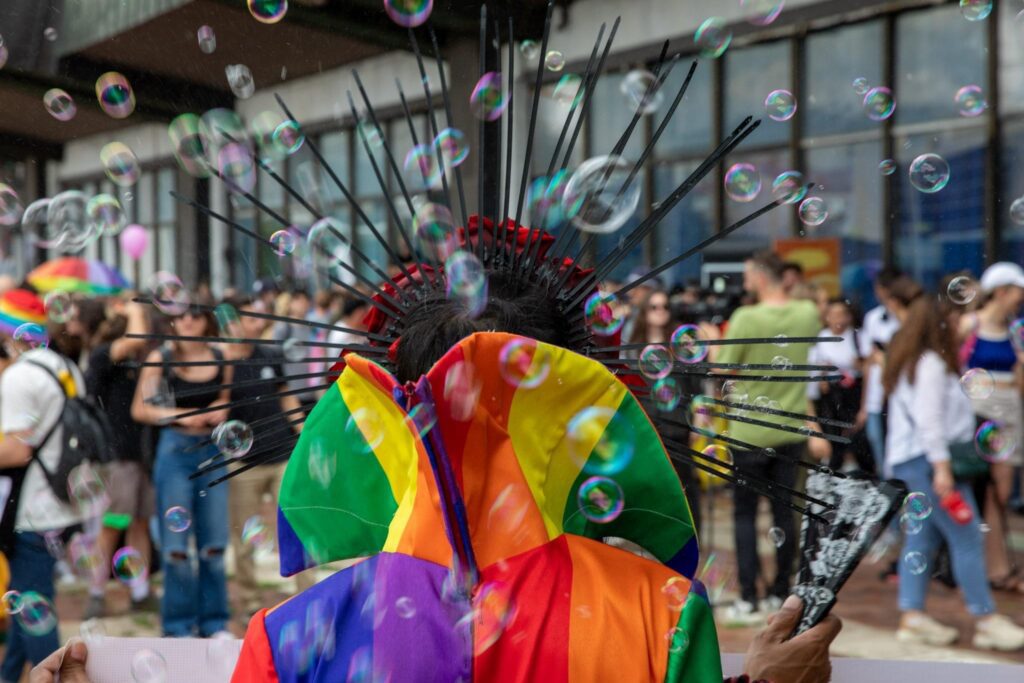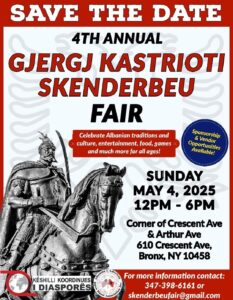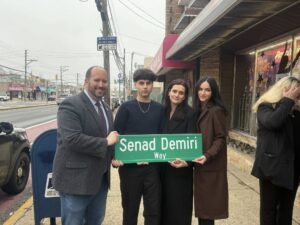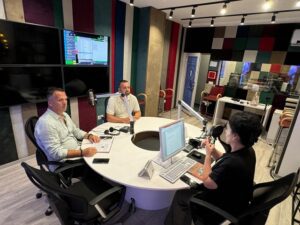The sixth Pride Parade was held in Prishtina on June 9 with the motto “Both in the state and in the family”.
Human rights activists and supporters of the LGBTIQ + community marched in the streets of Kosovo’s capital.
Pride Week started on June 6 in Kosovo and during the week a series of activities were held to evoke the rights of this community.
The motto “Both in the state and in the family”, according to activists, reflects the denied presence and existence of LGBTIQ + persons both in the state and in the family.
Shemsie Musa-Çerkini, mother of a gay person, said she was proud of her son and called on Kosovar society to “open its mind and heart”.
“The time has come for them to understand that everyone has the right to decide for themselves, to love whoever they want, to wear whatever they want, to marry whomever they want, to start a family with whomever they want. “, She said.
Meanwhile, the Ambassador of the European Union in Pristina, Thomas Szunyog, who participated in the parade together with members of the diplomatic corps, said based on the laws of Kosovo and the EU, discrimination on the basis of sexual orientation is prohibited, adding that it should do more to ensure that LGBTIQ + people are treated equally.
“While holding the annual and unhindered Pride Parades in Kosovo clearly demonstrates our commitment to protecting human rights and diversity, we must not forget that members of the LGBTIQ + community still face discrimination, both in Kosovo and in the EU. and that we all need to work together to ensure that LGBTIQ + people are treated equally” said Ambassador Szunyog.
This year’s parade was held at a time when there is no support in the Assembly of Kosovo for the new Draft Civil Code, which opens the possibility of drafting a law on registration of civil communities between persons of the same sex.
The Draft Civil Code did not define what a civil society is. However, it stated that “married persons and partners in civil society enjoy reciprocal rights and duties under this Code”.
Exactly the article that talked about this became the reason for the non-approval of the Draft Civil Code in the Assembly of Kosovo during March.
Opponents of civil society in the Assembly, as well as representatives of religious communities in Kosovo, have argued that such a thing would redefine the concept of family and marriage.
The Ministry of Justice, as the sponsor of the Draft Code, has not yet resubmitted it to the Assembly, although it had warned of such a thing.
The draft Civil Code, which did not pass, stated that “registered civil unions between persons of the same sex are allowed” and that the conditions and procedures in this regard are regulated by a special law.
Organizations representing LGBTIQ + rights had welcomed the non-approval of the Draft Civil Code, in its version as it was, insisting on the possibility of allowing marriage.
The Constitution of Kosovo states “that based on free consent, everyone enjoys the right to marry and the right to found a family in accordance with the law”.
LGBTIQ + community rights organizations have warned that if the new version of the Draft Civil Code does not regulate same-sex marriage, they will turn to the Constitutional Court for an opinion.
In Western countries, civil unions are not considered as marriage, but as a legal relationship between two persons, which provides legal protection for the couple, only at the state level.
In the European Union, civil unions allow two persons living together as a couple to register their relationship with the relevant public authority in their place of residence. Differences between EU countries in this area also exist.








